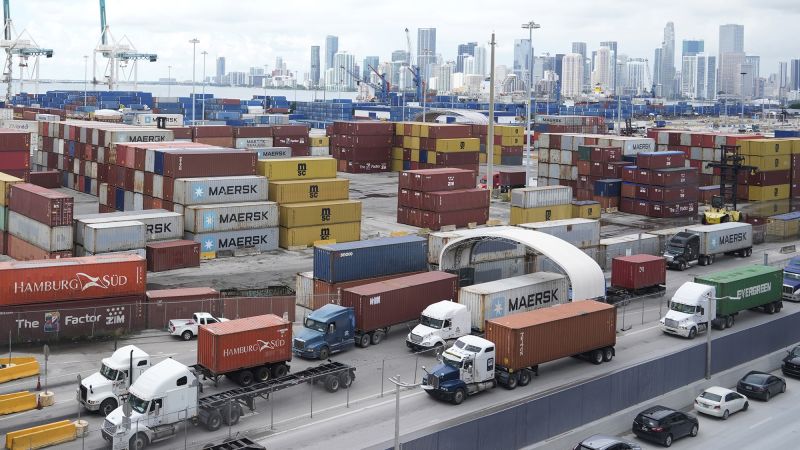The strike by 50,000 port workers that ended on Thursday evening had more winners than losers. The deal only covers wages, with other contract provisions being negotiated separately after the workers returned to work. A prolonged strike could have been extremely disruptive to the U.S. economy, as it halted the flow of imports and exports across dozens of ports. The major winners are the members of the International Longshoremen’s Association (ILA), who secured an immediate raise of $4 an hour, with the same raise every year for the six-year duration of the contract. This raise represents a significant increase in their pay.
ILA President Harold Daggett emerged as a national figure and a star after the strike. Despite facing criticism for his high salary and past allegations of mob ties, Daggett’s strong stance and strategy paid off. The strike brought attention to the profits made by shipping lines during the pandemic and highlighted the crucial role of ILA members in moving goods. Daggett’s ability to keep all the locals unified throughout negotiations was instrumental in the successful outcome of the strike.
The end of the strike is beneficial for businesses and consumers, as goods will start flowing again with minimal disruptions. A prolonged strike could have led to shortages and increased prices for various products. The National Retail Federation emphasized the need for both parties to reach a fair agreement before the extension expires to ensure continued economic stability. Although there were calls for President Joe Biden to intervene, he chose not to, allowing negotiations to proceed and avoiding a major economic crisis.
Shipping lines also benefitted from the fast resolution of the strike, as it prevented a significant tie-up in container capacity. The industry is currently profitable, making the short duration of the strike a manageable blip in operations. The United States Maritime Alliance, negotiating on behalf of shipping lines, terminal operators, and ports, settled for a deal under pressure from the Biden administration, which made it clear they would not intervene. This outcome was preferable to a prolonged strike that would have had far-reaching economic consequences.
Overall, the resolution of the strike was a win for the majority of stakeholders involved. The ILA members secured significant wage increases, businesses and consumers will benefit from the resumption of normal operations, and shipping lines avoided a prolonged disruption to their profitability. The strong leadership and unified stance of ILA President Harold Daggett played a crucial role in the successful outcome of the strike negotiations. The Biden administration’s decision not to intervene ultimately allowed for a fair agreement to be reached between the parties.


